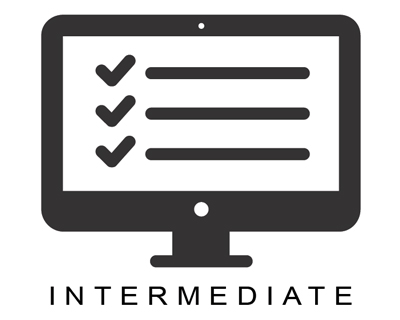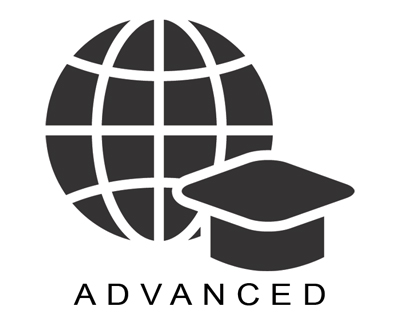This presentation will discuss how to design membership benefits that foster long-term engagement and satisfaction. Learn from the NC and CA chapters as they share strategies for creating appealing membership packages that attract new members and retain current ones. Gain practical tips to enhance your chapter’s value proposition and ensure continued member loyalty. The content… Continue reading BUS.138-Membership Benefits that Create Value and Drive Retention-AC25.USCC
Author: Alec Resha
BUS.137-Outreach Strategies to Grow and Maintain a Healthy Member Base-AC25.USCC
This session will focus on strategies for growing and maintaining a chapter’s membership. It will cover recruitment techniques, personalized engagement efforts, and effective resources used by successful USCC chapters to drive growth and ensure long-term vitality within the community. The content of this course is covered by Copyright and Licensing, Privacy and Terms of Service… Continue reading BUS.137-Outreach Strategies to Grow and Maintain a Healthy Member Base-AC25.USCC
DIV.237-Composting Infrastructure for Food Waste Diversion-AC25.USCC
This 90-minute panel will discuss food waste diversion in Phoenix, featuring experts from key facilities. Topics include food waste collection, contamination mitigation, public education, backend sortation, mega-event logistics, and the city’s composting programs. The panel will showcase successful collaborations between local organizations and facilities. The content of this course is covered by Copyright and Licensing,… Continue reading DIV.237-Composting Infrastructure for Food Waste Diversion-AC25.USCC
DIV.236-Contamination Removal at Large Scale Compost Facilities-AC25.USCC
This presentation will address managing contamination in composting facilities, covering types of contamination, methods to manage it without equipment, and best practices for labor, communication, and enforcement. It will also discuss equipment options for reducing contamination, including costs, maintenance, pros and cons, and their impact on product quality and profitability. Insights into working with customers… Continue reading DIV.236-Contamination Removal at Large Scale Compost Facilities-AC25.USCC
DIV.235-Managing Contamination in Large Scale Organics Programs-AC25.USCC
This presentation by CompostNow will discuss best practices for managing contamination in large-scale organics programs. It will cover strategies developed over a decade of experience, including establishing clear communication with partners, implementing contamination fee schedules, bundling compostable products with services, placing containers strategically, and using on-site sorting teams. Successful case studies from sports arenas, live… Continue reading DIV.235-Managing Contamination in Large Scale Organics Programs-AC25.USCC
DIV.234-Addressing Contamination – Collection Processing AD Com…-AC25.USCC
This presentation covers the organics operations in Sacramento, CA, developed in response to SB 1383. It includes food waste collection from the region, preprocessing to remove contamination, anaerobic digestion to generate biogas, and composting of the digestate. The focus is on the circular solution from collection to composting, highlighting the role of each process. The… Continue reading DIV.234-Addressing Contamination – Collection Processing AD Com…-AC25.USCC
SCI.313-Lessons Learned While Providing Technical Assistance to On…-AC25.USCC
Northern Tilth, LLC has been providing nutrient management planning services to livestock operations in the northeastern U.S. Their recent grant from the USDA-NRCS in Connecticut focuses on offering technical assistance to improve on-farm composting operations. The grant project aims to enhance composting outcomes, particularly for soil and water quality. This presentation will discuss the lessons… Continue reading SCI.313-Lessons Learned While Providing Technical Assistance to On…-AC25.USCC
SCI.312-Exploring the Compostability of Agrochemicals-AC25.USCC
This presentation covers the EPA’s compostability studies on agrochemicals to assess their environmental impact. It includes experimental design, feedstock analysis, sampling strategies, and evaluating compost quality, including pesticide residue breakdown and plant growth effects. The aim is to ensure pesticides are used safely for human and environmental health. The content of this course is covered… Continue reading SCI.312-Exploring the Compostability of Agrochemicals-AC25.USCC
SCI.311-Considering the Impact of Biochar Characteristics on Co-Co…-AC25.USCC
Recent research has highlighted the benefits of using biochar as an admixture in co-composting, including improved stabilization rates, reduced odor and VOC emissions, and enhanced nutrient mineralization. However, many studies have lacked quantitative measures of stabilization rates and have not systematically analyzed how biochar properties influence these outcomes. To address these gaps, ECS conducted controlled… Continue reading SCI.311-Considering the Impact of Biochar Characteristics on Co-Co…-AC25.USCC
USE.237-Can Compost Filter Socks Capture Waterborne Contaminants F…-AC25.USCC
Compost filter socks and straw wattles are both used for erosion and sediment control, but they function differently. While wattles trap sediment-laden water until it overflows, compost filter socks allow water to pass through, potentially improving pollutant filtration. This advantage is particularly relevant after wildfires, which release harmful contaminants into runoff. Following the 2018 Camp… Continue reading USE.237-Can Compost Filter Socks Capture Waterborne Contaminants F…-AC25.USCC


